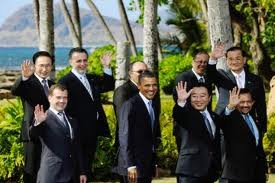
Practical information
Seminar with Ryo Sahashi, Associate Professor, Kanagawa University and Fellow with JCIE (Japan Center for International Exchanges), Marie-Orange Rivé-Lasan, Professor, University Paris Diderot and Alice Ekman, Associate Research Fellow, Center for Asian Studies, Ifri.
Chair: Françoise Nicolas, Director, Center for Asian Studies, Ifri.
In 2012, new political leadership has been taking root throughout the Asia-Pacific. While general elections were held in South Korea in April, a new President will step up in December. In Pyongyang, the anniversary of the nomination of Kim Jung-un as Supreme Leader will be celebrated at the end of the year. Last March, a presidential election was held in Russia while this November voters will go to the polls in the United States (Nov 6th) and a once-in-a-decade leadership change is expected in China (Nov 8th). Meanwhile, Japan"s government is suffering from low popularity and general elections are looming. What implications will these leadership changes have on regional stability in East Asia? This seminar will provide elements to understand the context of political transition in various countries in the region and how political change could shape the regional order.
The seminar will be held in English.
Speakers
Other events

Paris Naval Conference 2026: Naval Rearmament and Operations in Contested Waters
This fourth edition of the Paris Naval Conference (CNP), bringing together high-level military, industrial, and academic speakers, will address the challenges associated with general naval rearmament and naval operations in increasingly contested environments.







